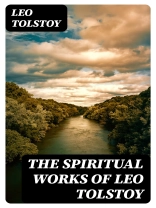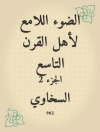In ‚The Spiritual Works of Leo Tolstoy, ‚ a compilation of his philosophical essays, letters, and reflections, Tolstoy delves into profound questions concerning morality, faith, and the essence of a meaningful life. His literary style, characterized by introspective depth and ethical clarity, invites readers to ponder the intricate relationship between spiritual belief and daily existence. Rooted in the context of 19th-century Russian society, Tolstoy’s work resonates with the existential struggles of individuals seeking purpose amid the challenges of modernity and the moral dilemmas posed by industrialization and materialism. Leo Tolstoy, a towering figure in world literature, was deeply influenced by his own spiritual crises and the experiences of war and peace. His writings frequently reflect his evolution from a successful novelist to a moral philosopher devoted to exploring the nature of love, compassion, and nonviolent resistance. The transformative power of faith profoundly shapes this body of work, showcasing his later abandonment of wealth and societal norms in favor of an ascetic lifestyle that sought to align personal actions with universal moral principles. This collection is an essential read for anyone intrigued by the intersection of literature and spirituality. Tolstoy’s insights remain strikingly relevant, urging readers to reflect on their own ethical beliefs and the broader implications of their existence. ‚The Spiritual Works of Leo Tolstoy‘ serves as a guiding light for those navigating the complexities of the human experience.
Über den Autor
Count Lev Nikolayevich Tolstoy, commonly known as Leo Tolstoy, was a Russian novelist and thinker, born on September 9, 1828, at Yasnaya Polyana, his family’s estate in the Tula Province of Russia. He is often considered one of the greatest novelists of all time due to his profound works in literature. Tolstoy’s literary style is characterized by his narrative depth, moral questioning, and meticulous realist detail which combined to form his distinct philosophical ponderings on life. His acclaimed novels ‚War and Peace‘ (1869) and ‚Anna Karenina‘ (1877) epitomize this style, painting a vivid portrayal of Russian life and the human condition. Beyond his fictional work, Tolstoy contributed heavily to the field of spiritual and religious thought. In ‚The Spiritual Works of Leo Tolstoy, ‚ a collection that reflects his radical theology and ethical reflections, Tolstoy exhibits his pursuit of truth and nonviolent resistance to evil, which later influenced figures such as Mahatma Gandhi and Martin Luther King Jr. His spiritual writings argue for the attainment of a pure life and advocate for Christian anarchism, steeped in the doctrines of the Sermon on the Mount. Tolstoy passed away on November 20, 1910, but his extensive oeuvre, which also includes short stories, plays, and philosophical essays, continues to resonate and stimulate scholarly and existential dialogues to this day.












